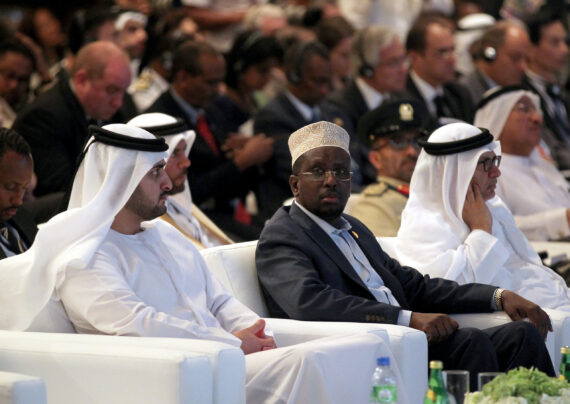The crisis between the two countries reached its peak in April 2018, when Somalian security forces seized a UAE-owned plane illegally carrying 9 million U.S. dollars in cash to the country. The allegations that the money in the plane was planned to be given to the anti-government groups in the country caused the Somali government to take a harder stance against the Emirates.

The Horn of Africa region has recently been the stage for a number of international actors that aim to expand their foreign policy reach. This can be seen from Turkey’s increasing relations with Somalia, China and Russia’s decision to establish military bases and the United Arab Emirates’ economic and military activities taking place particularly in Somalia and Djibouti.
These activities, however, receive different reactions by the countries of the region. While humanitarian and development-oriented activities of Turkey have received appreciation by Somalia and Djibouti, the UAE’s aspirations to influence these countries’ political life have faced cold reaction. The Somalia government allowed Turkey to establish its largest military bases in the country and the Djibouti government allocated a vast plot of land close to the Doraleh seaport in order for Turkey to establish a “Free Economic Zone.” On the other hand, both countries soured relations with the UAE, criticising Abu Dhabi for pursuing an interventionist policy. Examples of these strained relations can be seen in the recent political crisis between the Emirates and two important countries of the region, Somalia and Djibouti.
Mogadishu and Abu Dhabi enjoyed close relations during the presidency of Hasan Sheikh Mahmoud of Somalia. However, relations deteriorated in 2017 following the election of Mohamed Abdullahi Mohamed, known as Fermacu, who was supported by Turkey and Qatar, countries that also have tense relations with the UAE. Following his election to presidency, Abdullahi criticized the Emirati activities in the region and argued that the UAE does not respect the national sovereignty of Somalia. In the following period, Abdulahi took a firm stance against the UAE and prevented some of its activities taking place in the country.
One of the activities of the UAE was the establishment of military bases in Somalia’s semi-autonomous regions, Somaliland and Puntland. President Abdullahi criticized these activities and argued that they were against Somalia’s national sovereignty. The UAE, on the other hand, intensified its activities in these regions and had taken a more aggressive stance against Mogadishu by supporting political actors in Somaliland and Puntland. It was even argued that the UAE encouraged these regions for independence from Somalia. The tension between Mogadishu and Abu Dhabi further deteriorated when the parliament of Somalia passed a bill in March 2018, preventing the UAE’s economic and military activities in the country.
The crisis between the two countries reached its peak in April 2018, when Somalian security forces seized a UAE-owned plane illegally carrying 9 million U.S. dollars in cash to the country. The allegations that the money in the plane was planned to be given to the anti-government groups in the country caused the Somali government to take a harder stance against the Emirates.